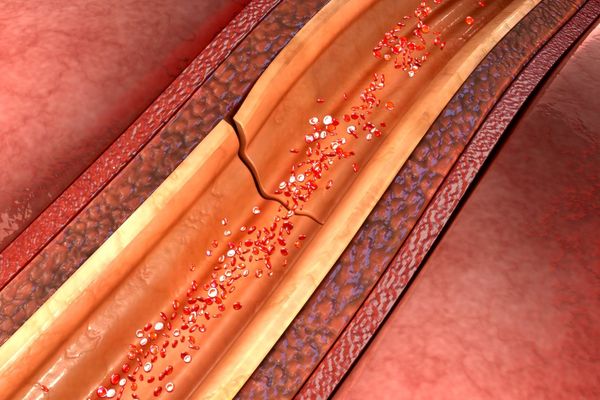Your annual physical exam is an ideal opportunity to refocus your attention on health-related prevention and screening tactics. Seeing your internist or primary care physician annually can help familiarize your health care provider with your family medical history, lifestyle and overall health. Your health care provider can help prevent problems before they become an issue.
Heart health should definitely be part of your discussion. Your health care provider can help address and manage cardiovascular issues like blood pressure and cholesterol levels. When you feel comfortable with a health care provider you see regularly, you'll be less likely to ignore important symptoms like chest pain. And you'll be more likely to reach out to when something's not right.
Raising your awareness about heart health is the first step to preventing it from becoming an issue in your life. Here are a few heart-health questions you should be asking your health care provider at your annual physical.
How can I fight heart disease?
Some risk factors like family history you can't control. However, you can take charge of high blood pressure, high cholesterol, smoking and diabetes. You can quit smoking. You can eat a diet low in fat and sodium. You can exercise regularly. You can take medications for your blood pressure, diabetes and smoking—including taking advantage of new therapies on the market.
What is my ideal waist circumference?
Abdominal fat increases the likelihood of a future heart attack. So, it's important to reduce the size of your belly. Women with a waist measurement greater than 35 inches may be at higher risk for certain diseases and health issues. A high waist circumference is associated with an increased risk of high blood pressure and heart disease.
What are symptoms of heart attack in women?
Women are more likely than men to have heart attack symptoms unrelated to chest pain. Symptoms include neck, jaw, shoulder, upper back or abdominal discomfort; pain in one or both arms; sweating; nausea or vomiting; shortness of breath; unusual fatigue; indigestion; or lightheadedness or dizziness.
What should my LDL ("bad") cholesterol levels be?
Low-density lipoprotein, aka LDL "bad" cholesterol, blocks your blood vessels and increases your risk of heart disease. The lower your cholesterol number, the lower your risk. An LDL of 190 or more is considered very high. Lower your LDL number through diet, exercise and medication. Talk to your health care provider about what new therapies are available to you.
Should I take aspirin daily?
If you have had a heart attack or stroke, your health care provider may want you to take a daily low dose of aspirin to help prevent another one. However, because of the risk of bleeding, aspirin therapy isn't recommended if you've never had a heart attack or stroke. If you're over 70, taking aspirin to prevent a first heart attack or stroke could do more harm than good. Since the risks and benefits vary, don't take daily low-dose aspirin without talking to your health care provider first.
What should my blood pressure levels be?
A blood pressure of less than 120/80 mmHg is considered normal and optimal for most adults. High blood pressure can lead to a heart attack and stroke. If your blood pressure isn't normal, a healthy lifestyle and oftentimes medication (speak with your health care provider about your therapy options) can help control it and reduce your risk of life-threatening complications.
This resource was created with support from Sanofi, Bristol-Myers Squibb, and Novartis.
- What Worries Women About Their Heart Health? ›
- Important Questions to Ask Your Health Care Professional About High Cholesterol ›
- Heart Disease ›
- 15 Minutes With: Nieca Goldberg, M.D., Talks About Heart-Health Awareness ›
- Important Questions You Should Ask Your Health Care Professional About Cardiovascular Disease Prevention ›






